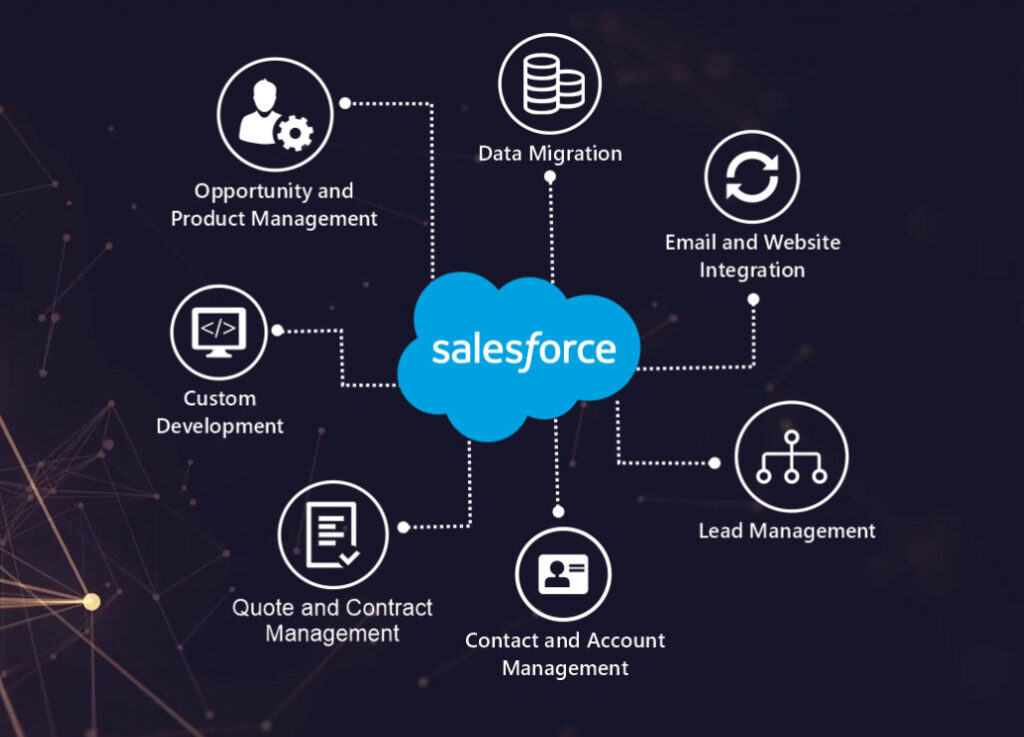Salesforce Technology
Salesforce Technology

A Salesforce Technology
In today’s fast-paced business environment, customer relationship management (CRM) is crucial for success. Salesforce, a leading name in this domain, offers a comprehensive suite of tools to help businesses manage their customer relationships effectively. This blog delves into the core aspects of Salesforce technology, exploring its features, benefits, and why it stands out in the crowded CRM market.
What is Salesforce?
Salesforce is a cloud-based CRM platform that provides a unified solution for sales, service, marketing, and more. Founded in 1999 by Marc Benioff, Salesforce has grown to become a global leader in CRM, offering a wide range of products and services designed to improve business processes and customer interactions.

Key Features of Salesforce
- Sales Cloud: Helps sales teams manage their sales process, track leads, and close deals faster. It provides tools for contact management, opportunity management, sales forecasting, and more.
- Service Cloud: Designed for customer service and support teams, Service Cloud offers features like case tracking, knowledge management, and support automation, enabling businesses to deliver exceptional customer service.
- Marketing Cloud: A robust platform for managing and automating marketing campaigns across multiple channels, including email, social media, and advertising. It helps marketers deliver personalized experiences to customers.
- Commerce Cloud: Enables businesses to create seamless shopping experiences across all channels, including mobile, web, and social media. It provides tools for product management, order management, and customer engagement.
- Community Cloud: Allows businesses to create online communities for customers, partners, and employees to interact, share information, and collaborate.
- Analytics Cloud: Provides advanced data analytics capabilities, allowing businesses to gain insights from their data and make informed decisions.
- AppExchange: Salesforce’s marketplace for third-party applications. It offers thousands of apps that integrate seamlessly with Salesforce, extending its functionality and allowing businesses to customize their CRM experience.
Benefits of Using Salesforce
- Scalability: Salesforce can grow with your business. Whether you’re a small startup or a large enterprise, Salesforce offers scalable solutions that can be customized to meet your specific needs.
- Integration: Salesforce integrates with a wide range of third-party applications and services, making it easier to streamline your business processes and improve efficiency.
- Cloud-Based: Being a cloud-based platform, Salesforce provides accessibility from anywhere, at any time, on any device. This ensures that your team can stay connected and productive, no matter where they are.
- Customizability: With Salesforce’s powerful customization options, businesses can tailor the platform to fit their unique processes and requirements. This includes custom fields, workflows, and even custom applications.
- Community and Support: Salesforce has a large and active community of users, developers, and partners. This community provides a wealth of resources, support, and best practices to help businesses get the most out of the platform.
Why Salesforce?
Salesforce stands out in the CRM market due to its comprehensive suite of tools, flexibility, and strong focus on customer success. Its continuous innovation and commitment to providing value to its customers make it a preferred choice for businesses looking to enhance their customer relationship management.
In conclusion, Salesforce technology offers a powerful and versatile CRM solution that can help businesses improve their sales, service, marketing, and overall customer engagement. With its robust features and benefits, Salesforce continues to lead the way in the CRM space, helping businesses around the world achieve their goals and drive growth.
Written By : Meet Patel



